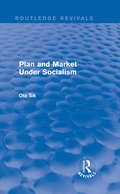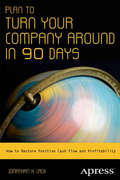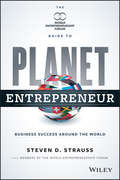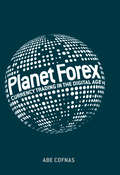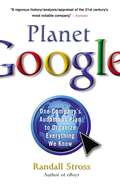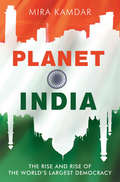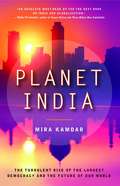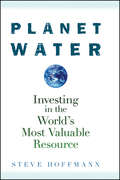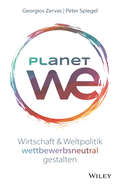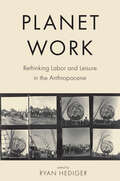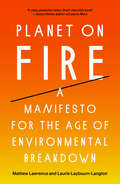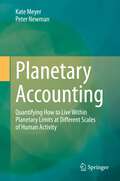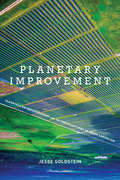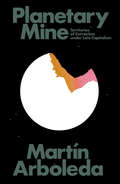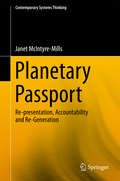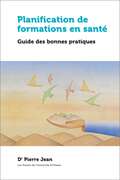- Table View
- List View
Plan de Acción de Shopify: 6 Pasos para Construir un Negocio de Triangulación de Envíos
by Alessandro¿Estás Listo Para Convertirte En Un Experto De La Triangulación de Envíos En Solo 6 Sencillos Pasos? No tienes que pagar una pequeña fortuna por cursos en línea o pasar meses investigando. El Plan de Acción de Shopify: 6 Pasos para Construir un Negocio de Triangulación de Envíos está aquí para ahorrarte un tiempo valioso y un esfuerzo invaluable al ofrecerte la más esencial guía de Dropshipping, para que puedas construir tu propio imperio de triangulación de envíos! Incluso si no tienes absolutamente ninguna experiencia, ¡esta guía completa de Shopify te enseñará todo lo que necesitas saber! Al Final De Esta Guía Completa de Dropshipping Serás Capaz De: Entender El Proceso de Triangulación de Envíos Buscar Los Mejores Proveedores Identificar Cuáles Productos Se Venden Mejor Encontrar Tu Nicho Configurar Tu Tienda Shopify Establecer Precios y Páginas de Productos Anunciar y Promover Tu Nuevo Negocio ¿Qué Esperas? ¡Todo lo que tienes que hacer es leer esta guía paso a paso para la triangulación de envíos y encontrar todas las respuestas a tus preguntas! ¡No lo Dudes! Haz clic en “Comprar Ahora” y Haz Una Inversión Para Tu Futuro Imperio en Shopify!
Plan the Strategy: Aligning the Organization for Effective Strategy Execution
by Robert S. Kaplan David P. NortonThe process of planning an organization's strategy converts statements of strategic direction into specific objectives, measures, targets, initiatives, and budgets that guide action and align the organization for effective strategy execution. This chapter addresses the translation of the strategy into a strategy map, built around strategic themes, and an associated Balanced Scorecard of measures and targets for each of the map's strategic objectives.
Plan to Turn Your Company Around in 90 Days
by Jonathan H. LackMore than half of all businesses in the U. S. don't make it to their fifth birthday, and nearly 70 percent are gone by year ten. How do businesses get into trouble? A hundred different ways. Poor cash flow, undercapitalization, lax financial controls, poor worker productivity, boneheaded mistakes, inefficient processes, failure to adapt, loss of enthusiasm . . . the list goes on and on. The fact is, many businesses that face life-threatening challenges, or are just stuck in the doldrums, can turn their fortunes around. And Jonathan Lack is the expert who can show you how. Lack is a turnaround specialist--the guy called in to reinvigorate a stalled company or revamp the poor practices that reduce sales and decimate profits. Once he's done, the company is again on the road to growth and profitability. Plan to Turn Your Company Around in 90 Days is a pragmatic, step-by-step guide to helping your company not only survive but begin to grow again. Among other things, this book will teach you how to improve your company's cash flow, how to better manage your payroll and employee productivity, and how to get better results from your marketing and sales efforts. Turn Your Company Around in 90 Days will help you develop a framework to create a strategic plan that will move your company in the right direction and breathe new life into tired or worn-out operations and products. Plan to Turn Your Company Around in 90 Days will immediately help your firm in the following areas: How to get to "cash flow positive" and then grow How to manage technology better How to manage your payroll and employee productivity How to improve marketing and increase sales How to restore profitability How to manage your board of directors and investors If you're at all fearful that your company may not last the next couple of years, this book is for you. What you'll learn How to manage and preserve cash How to reduce your expenses How to increase your margins How to increase employee productivity and improve operations How to assess the strength of your products and services How to increase sales and marketing efficiency How to create a strategic plan to turn your company around How to restore enthusiasm and become a desirable employer again Who this book is for This book is written for CEOs, CFOs, COOs, and CMOs of large companies, midcaps, and small businesses. It's also for angel investors, board directors, private equity firms, and venture capitalists. It is intended to give readers the confidence that, by developing a basic plan, they can turn their company around and give it new life. Table of Contents How to Manage Cash Flow Better How to Manage Accounts Payable Better How to Manage Accounts Receivable Better How to Manage Employee Productivity Better How to Manage Technology, Facilities, and Manufacturing Better How to Manage Process Flows Better How to Better Understand Your Customers, Competitors, and Key Trends How to Develop a More Effective Marketing Strategy How to Develop a More Effective Sales Strategy How to Manage Investors and the Board of Directors Better How to Hire and Manage Your Turnaround Consultant How to Manage Yourself and Your Staff Better Sample Consulting Proposal
Planen mit Eisenhower, Porter, Churchill & Co.
by James McGrathDas Buch "Planen mit Eisenhower, Porter, Churchill & Co." aus der Reihe "Management Short Cuts" versammelt 7 Zitate von Business-Gurus und bekannten Persönlichkeiten. Bei jedem Zitat wird erklärt, was es bedeutet, wie Sie es nutzen können und welche Fragen Sie sich stellen sollten. Kurz, kompakt und auf den Punkt können Sie so schnell die Kernbotschaft erfassen und anwenden. Sie erhalten wertvolle Einblicke und Kenntnisse für Ihren Erfolg!
Planet Entrepreneur: The World Entrepreneurship Forum's Guide to Business Success Around the World
by Steven D. StraussHow to develop an entrepreneurial mindset, begin a successful venture, and change the world for the better We are living in a world of incredible challenge and changes, and for both the entrepreneur and potential entrepreneur alike, this also means it is a world of ample opportunities. From the fall of the Berlin Wall to the rise of e-commerce and social media, there are now, today, more markets, tools, and opportunities for entrepreneurs than ever before. Even better: we are now also living in a world more predisposed to entrepreneurial solutions than ever, and we need those solutions—not just to create the Next Big Thing, but to solve the Next Big Problem. Every issue that individuals, communities, and nations face offers the entrepreneur the chance to make a difference. For anyone ready to embark on a mission to solve problems, create communities, build businesses, tap technology, and think entrepreneurially, this new world is teeming with opportunities for success. Uses real-life examples to explain the full extent of today's global entrepreneurial revolution and its vital importance for our future Explains where the emerging markets are and how to tap into them to achieve success Offers insights on the global entrepreneurial revolution, the future of financing, the rise of the self-employed army, the transformation of innovation, and the view from the "bottom of the pyramid" Learn how the worlds' best entrepreneurs are starting profitable businesses, innovating, or creating organizations to alleviate social needs across the globe. Planet Entrepreneur teaches how anyone can develop an entrepreneurial mindset, begin a successful venture, and change the world for the better. This is the Era of the Entrepreneur.
Planet Forex: Currency Trading in the Digital Age
by Abe CofnasThis valuable book provides a much-needed integration of fundamental analysis of global forces and technical analysis to provide highly probable trades in currency markets.Fundamental analysis is often too vague and not quantified. This book provides insights into fundamental analysis and then calibrates it to trading strategies and techniques. Fundamentals are clearly defined as longer-term economic expectations regarding growth, inflation, and labor conditions. Nearer-term understanding of fundamentals deals with market psychology, where markets are manifest risk-on and risk-off emotions. Currencies are explained as expectations battles generating expectation waves. With real trading examples included to underscore the concepts, Planet Forex gives readers an invaluable primer on trading market sentiment that is unprecedented. This book is a must-read for global forex traders, portfolio managers, and other employees in the forex industry, including exchanges, brokerage firms, and financial planners and advisors.
Planet Google: One Company's Audacious Plan to Organize Everything We Know
by Randall StrossBased on unprecedented access he received to the highly secretive "Googleplex," acclaimed New York Times columnist Randall Stross takes readers deep inside Google, the most important, most innovative, and most ambitious company of the Internet Age. His revelations demystify the strategy behind the company's recent flurry of bold moves, all driven by the pursuit of a business plan unlike any other: to become the indispensable gatekeeper of all the world's information, the one-stop destination for all our information needs. Will Google succeed? And what are the implications of a single company commanding so much information and knowing so much about us? As ambitious as Google's goal is, with 68 percent of all Web searches (and growing), profits that are the envy of the business world, and a surplus of talent, the company is, Stross shows, well along the way to fulfilling its ambition, becoming as dominant a force on the Web as Microsoft became on the PC. Google isn't just a superior search service anymore. In recent years it has launched a dizzying array of new services and advanced into whole new businesses, from the introductions of its controversial Book Search and the irresistible Google Earth, to bidding for a slice of the wireless-phone spectrum and nonchalantly purchasing YouTube for $1.65 billion. Google has also taken direct aim at Microsoft's core business, offering free e-mail and software from word processing to spreadsheets and calendars, pushing a transformative -- and highly disruptive -- concept known as "cloud computing." According to this plan, users will increasingly store all of their data on Google's massive servers -- a network of a million computers that amounts to the world's largest supercomputer, with unlimited capacity to house all the information Google seeks. The more offerings Google adds, and the more ubiquitous a presence it becomes, the more dependent its users become on its services and the more information they contribute to its uniquely comprehensive collection of data. Will Google stay true to its famous "Don't Be Evil" mantra, using its power in its customers' best interests? Stross's access to those who have spearheaded so many of Google's new initiatives, his penetrating research into the company's strategy, and his gift for lively storytelling produce an entertaining, deeply informed, and provocative examination of the company's audacious vision for the future and the consequences not only for the business world, but for our culture at large.
Planet India
by Mira KamdarIndia is everywhere - Indian studios produce animated features and special effects for Hollywood movies; Indian software manages our health records; and Indian customer service centres answer our calls. A country of English speakers and a free-market democracy, with the youngest population on Earth, India is not only the fastest growing market for the next new thing, but a source for the technological innovation that will drive the global economy. Yet, India is also in a race against time to bring the benefits of the twenty-first century to the 800 million Indians who live on less than £1 per day, and it must do so in a way that is environmentally sustainable and politically viable on a scale never before achieved. If India succeeds, it will not only save itself, it may save us all. If it fails, we will all suffer. As goes India, so goes the world. Like CHINA, INC, published in 2006 by S&S, PLANET INDIA will capture and catalyze the growing interest in this rising power. With in-depth research, interviews and provocative analysis, Mira Kamdar offers a penetrating view of India and its cultural and economic impact on the world. From Bollywood to the Indian diaspora to India's effect on global politics she reports on the people, companies and places shaping the new India. Kamdar examines the challenges India faces while celebrating India's tremendous vitality and the opportunities this Asian democracy has to shape its own and all of our destinies.
Planet India: How the Fastest Growing Democracy Is Transforming America and the World
by Mira KamdarIndia is everywhere: on magazine covers and cinema marquees, at the gym and in the kitchen, in corporate boardrooms and on Capitol Hill. Through incisive reportage and illuminating analysis, Mira Kamdar explores India's astonishing transformation from a developing country into a global powerhouse. She takes us inside India, reporting on the people, companies, and policies defining the new India and revealing how it will profoundly affect our future -- financially, culturally, politically. <p><p> The world's fastest-growing democracy, India has the youngest population on the planet, and a middle class as big as the population of the entire United States. Its market has the potential to become the world's largest. As one film producer told Kamdar when they met in New York, "Who needs the American audience? There are only 300 million people here." Not only is India the ideal market for the next new thing, but with a highly skilled English-speaking workforce, elite educational institutions, and growing foreign investment, India is emerging as an innovator of the technology that is driving the next phase of the global economy. <p> While India is celebrating its meteoric rise, it is also racing against time to bring the benefits of the twenty-first century to the 800 million Indians who live on less than two dollars per day, to find the sustainable energy to fuel its explosive economic growth, and to navigate international and domestic politics to ensure India's security and its status as a global power. India is the world in microcosm: the challenges it faces are universal -- from combating terrorism, poverty, and disease to protecting the environment and creating jobs. The urgency of these challenges for India is spurring innovative solutions, which will catapult it to the top of the new world order. If India succeeds, it will not only save itself, it will save us all. If it fails, we will all suffer. As goes India, so goes the world. <p> Mira Kamdar tells the dramatic story of a nation in the midst of redefining itself and our world. Provocative, timely, and essential, Planet India is the groundbreaking book that will convince Americans just how high the stakes are -- what there is to lose, and what there is to gain from India's meteoric rise.
Planet Reebok (A)
by Jamie Harper John A. QuelchReebok International Ltd. is preparing to launch its first global advertising campaign for "Planet Reebok" in three European countries--France, Germany, and the United Kingdom. Planet Reebok was recently launched in the United States during the 1993 Superbowl. The company conducted market research on the Planet Reebok concept in the three countries.
Planet Water: Investing in the World's Most Valuable Resource
by Steve HoffmannSolving the world's water problems is proving to be one of the greatest investment opportunities of our time. Already, world water supplies are inadequate to meet demand, and the problem is going to get much worse in the years ahead.<P><P> The World Bank estimates that 1.1 billion people lack access to safe drinking water and about 50 percent of the world's hospital beds are populated by people who have contracted water-borne diseases. If present consumption rates continue, in 25 years the world will be using 90 percent of all available freshwater. To address the problem, trillions of dollars will need to be invested in water infrastructure projects. And while the problems are most acute in developing and rapidly growing economies, there are huge water infrastructure needs in industrialized countries, as well. In the U.S. alone, it's estimated that more than $1 trillion will be needed for water and wastewater infrastructure projects. In Planet Water, water investment expert Steven Hoffmann explains the dynamics driving the water crisis and identifies investment opportunities in various sectors of the water industry. Hoffman provides investors with the knowledge and insights they need to make informed investments in water utilities, as well as companies providing water treatment services; infrastructure services; water monitoring and analytics; and desalination services. He also discusses mutual funds and ETFs that specialize in water stocks. Investing in the water industry is certainly no pie-in-the-sky idea. Over the past five years, many water stocks have exploded in value and water stocks as a whole have outperformed the S&P 500 by a substantial amount. In Planet Water, Hoffmann provides investors with everything they need to profit from this fast-growing industry in the years ahead.
Planet We: Wirtschaft und Weltpolitik wettbewerbsneutral gestalten
by Peter Spiegel Georgios ZervasWas nützen noch so wichtige und richtige Forderungen, wenn deren Umsetzungen fortlaufend unfassbar lähmen - selbst bei unverkennbar existenziellen Bedrohungen? Gibt es keinen Weg, wie Klima-, Bildungs-, soziale, wirtschaftliche, politische und sonstige notwendige Wenden zügig angepackt und effektiv umgesetzt werden können? Die Antwort ist so einfach wie spektakulär hoffnungsstiftend: Selbst ausgesprochen kühne Handlungskonzepte stellen selbst für die Wirtschaft absolut kein Problem dar, wenn sie eine Voraussetzung erfüllen, ein Prinzip beachten: wenn sie wettbewerbsneutral sind. Wettbewerbsneutrale Lösungen sind per se Win-win-win-Lösungen und geben uns genau deshalb effektive Handlungsfähigkeit zurück. Sie bereiten den Weg zu einer Transformation der heutigen Wett-Wirtschaft zu einer blühenden öko-sozial nachhaltigen "Planet We Economy". Dieses Buch erläutert das Prinzip der Wettbewerbsneutralität - und wendet es an auf die großen Gestaltungshebel von öko-sozialen Standards bis hin zur lokalen bis globalen Steuer-, Bildungs- und Innovationspolitik an. Der renommierte Club of Budapest, eine internationale Vereinigung, die sich der Entwicklung einer neuen Denkweise und einer neuen Ethik verschrieben hat, die zur Lösung der sozialen, politischen, wirtschaftlichen und ökologischen Herausforderungen des 21. Jahrhunderts beitragen, hat sich entschieden, das Buch als "Report an den Club of Budapest" anzunehmen! "Das Buch verdient die Lektüre von allen, die für eine bessere Welt wirken möchten." (Prof. Dr. Dr. Ervin Laszlo, Gründer und Präsident des Club of Budapest International, im Vorwort zum Buch)
Planet Work: Rethinking Labor and Leisure in the Anthropocene
by James Armstrong Jennifer K. Ladino Amanda Adams Ted Geier Sharon O'Dair Ryan Hediger David Rodland Sinan Akilli Daniel Clausen Matt Wanat Will Elliot Kevin Maier Jo ReyLabor and labor norms orient much of contemporary life, organizing our days and years and driving planetary environmental change. Yet, labor, as a foundational set of values and practices, has not been sufficiently interrogated in the context of the environmental humanities for its profound role in climate change and other crises. This collection of essays demonstrates the urgent need to rethink models and customs of labor and leisure in the Anthropocene. Recognizing the grave traumas and hazards plaguing planet Earth, contributors expose fundamental flaws in ideas of work and search for ways to redirect cultures toward more sustainable modes of life. These essays evaluate Anthropocene frames of interpretation, dramatize problems and potentials in regimes of labor, and explore leisure practices such as walking and storytelling as modes of recasting life, while a coda advocates reviving notions of work as craft.
Planet of the Rotting Minds?: How Video Games Forged the Next Baby Boom
by John C. Beck Mitchell WadeResearch has shown that the newest generation to enter the workforce is very different from the boomers in ways that matter throughout business. According to the authors, those differences (and there are many) are driven by one central factor: growing up with video games. But how much do video games matter? This chapter illustrates just how pervasive video games have become in shaping American culture and why it's so important for companies and managers to understand and relate to the gamer generation. This chapter is excerpted from "The Kids Are Alright: How the Gamer Generation Is Changing the Workplace."
Planet on Fire: A Manifesto for the Age of Environmental Breakdown
by Mathew Lawrence Laurie Laybourn-LangtonA radical manifesto for how to deal with environmental breakdownIn the age of environmental breakdown, breakdown, the political status quo has no answer to the devastating and inequitably distributed consequences of the climate emergency. We urgently need an alternative to bring about the rapid transformation of our social and economic systems. As we rebuild our lives in the wake of Covid-19 and face the challenges of ecological disaster, how can the left win a world fit for life? Planet on Fire is an urgent manifesto for a fundamental reimagining of the global economy. It offers a clear and practical road map for a future that is democratic and sustainable by design. Laurie Laybourn-Langton and Mathew Lawrence argue that it is not enough merely to spend our way out of the crisis; we must also rapidly reshape the economy to create a new way of life that can foster a healthy and flourishing environment for all. Planet on Fire offers a detailed and achievable manifesto for a new politics capable of tackling environmental breakdown.
PlanetTran
by Lauren H. Cohen Christopher MalloyPlanetTran is an environmentally-friendly car service that utilizes a fleet of hybrid cars in providing livery service to corporations and individuals. The founder, Seth Riney, is evaluating outside funding options in order to expand the company, and has met several local venture capital (VC) firms, Riney must decide if the dilution he would have to undergo in order to accept a substantial capital investment was worth the added upside to the company that both he and the VCs envisioned.
Planetary Accounting: Quantifying How to Live Within Planetary Limits at Different Scales of Human Activity
by Peter Newman Kate MeyerThis book presents a novel way to enable people, regardless of their scale of influence, to take responsibility for global environmental problems including climate change. It introduces a new framework called Planetary Accounting, which allows the Planetary Boundaries, non-negotiable limits for the environment, to be translated into limits for human activity. It shows how such limits can be broken down into chunks that can be managed at different levels (from individual and community, to business and sector levels, to cities and regions), and at any level of government. The book begins by summarising the science of climate change and introducing the notion of the Anthropocene – the “human age”. It highlights the importance of returning to and remaining within the Planetary Boundaries but shows that we can’t realistically do so unless we have a new approach to environmental accounting.The book then outlines how Planetary Accounting furnishes this new approach by combining sustainability science, change theory, and environmental accounting to create a scalable framework for environmental management that encourages systemic and individual change. The details of the science of and our human contribution to ten critical human pressures are then presented, and the book concludes with a guide for those seeking to apply Planetary Accounting in practice. Planetary Accounting could form the scientific underpinning of behaviour change programs, guide the development of policy and regulations, and provide both the basis for environmental laws, and the foundation of future global environmental agreements. It has been 50 years since the first views from space showed a blue planet alone in our solar system. This book is an historic opportunity to provide humanity for the first time with sufficient information to begin implementing Planetary Accounting.
Planetary Improvement: Cleantech Entrepreneurship and the Contradictions of Green Capitalism (The\mit Press Ser.)
by Jesse GoldsteinAn examination of clean technology entrepreneurship finds that “green capitalism” is more capitalist than green.Entrepreneurs and investors in the green economy have encouraged a vision of addressing climate change with new technologies. In Planetary Improvement, Jesse Goldstein examines the cleantech entrepreneurial community in order to understand the limitations of environmental transformation within a capitalist system. Reporting on a series of investment pitches by cleantech entrepreneurs in New York City, Goldstein describes investor-friendly visions of incremental improvements to the industrial status quo that are hardly transformational. He explores a new “green spirit of capitalism,” a discourse of planetary improvement, that aims to “save the planet” by looking for “non-disruptive disruptions,” technologies that deliver “solutions” without changing much of what causes the underlying problems in the first place.Goldstein charts the rise of business environmentalism over the last half of the twentieth century and examines cleantech's unspoken assumptions of continuing cheap and abundant energy. Recounting the sometimes conflicting motivations of cleantech entrepreneurs and investors, he argues that the cleantech innovation ecosystem and its Schumpetarian dynamic of creative destruction are built around attempts to control creativity by demanding that transformational aspirations give way to short-term financial concerns. As a result, capitalist imperatives capture and stifle visions of sociotechnical possibility and transformation. Finally, he calls for a green spirit that goes beyond capitalism, in which sociotechnical experimentation is able to break free from the narrow bonds and relative privilege of cleantech entrepreneurs and the investors that control their fate.
Planetary Mine: Territories of Extraction under Late Capitalism
by Martin ArboledaA clarion call to rethink natural resource extraction beyond the extractive industriesPlanetary Mine rethinks the politics and territoriality of resource extraction, especially as the mining industry becomes reorganized in the form of logistical networks, and East Asian economies emerge as the new pivot of the capitalist world-system. Through an exploration of the ways in which mines in the Atacama Desert of Chile—the driest in the world—have become intermingled with an expanding constellation of megacities, ports, banks, and factories across East Asia, the book rethinks uneven geographical development in the era of supply chain capitalism. Arguing that extraction entails much more than the mere spatiality of mine shafts and pits, Planetary Mine points towards the expanding webs of infrastructure, of labor, of finance, and of struggle, that drive resource-based industries in the twenty-first century.
Planetary Passport
by Janet Mcintyre-MillsThis book explores the implications of knowing our place in the universe and recognising our hybridity. It is a series of self-reflections and essays drawing on many diverse ways of knowing. The book examines the complex ethical challenges of closing the wide gap in living standards between rich and poor people/communities. The notion of an ecological citizen is presented with a focus on protecting current and future generations. The idea is to track the distribution and redistribution of resources in the interests of social and environmental justice. The central argument looks for ways to hold the powerful to account so as to enable virtuous living by the majority to be demonstrated in what the author calls a "planetary passport" - a careful use of resources and a way to provide safe passage to those in need of safe habitat. The book argues that nation states need to find ways to control the super-rich through the governance process and to enhance a sense of shared ecological citizenship and responsibility for biodiversity. The fundamental approach is collaborative research. Planetary Passport: Representation, Accountability and Re-Generation is comprised of six chapters. Chapter 1 begins by making a case for a paradigm shift away from business as usual and the pursuit of profit at the expense of the social and environmental fabric of life. The aim is to explore alternatives and to discuss some ways of achieving wellbeing whilst the focus is on human rights, discrimination and outlining the notion of a planetary passport. Chapter 2 makes a specific link between people and the planet as a basis for understanding the nature of hybridity and interconnectedness and the implications for ethics. Chapter 3 focuses on building this planetary passport for social and environmental justice in order to enable people with complex needs to consider the consequences of either continuing to live the same way as before or making changes to the way that they live. Meanwhile Chapter 4 does the same as the previous chapter, but explores the political context of consumption and short term profit Chapter 5 examines the challenges and opportunities that come from explorations within a cross-cultural learning community. This includes a look at co-creation and co-determination. Finally Chapter 6 ends with a look to the future and a potential new framework for people and the planet through a planetary passport.
Planetary Resources Inc., Property Rights, and the Regulation of the Space Economy
by Matthew C. Weinzierl Angela AcocellaPlanetary Resources, Inc. (PRI) had a bold, some said crazy, vision: to mine asteroids. One might have assumed that developing the right technology would be the greatest challenge facing PRI. But even if the fledgling company could develop and deploy the sophisticated imaging, prospecting, and communication capabilities required for mining asteroids, two additional obstacles meant success was not guaranteed. First, uncertainty remained over whether, and how, property rights to resources mined in space would be enforced. PRI's leadership's challenge was to anticipate, and perhaps shape, how this uncertainty would be resolved. Making that balancing act more difficult was a second factor: a complex and underfunded U.S. regulatory infrastructure that threatened to slow PRI's progress and escalate costs.
Planification de formations en santé: Guide des bonnes pratiques (Éducation)
by Pierre JeanConcevoir une activité de formation peut être intimidant ; réformer tout un programme d’études l’est d’autant plus. Voici un guide pratique de planification des apprentissages à l’intention des formateurs qui n’ont pas nécessairement une longue expérience dans le domaine. Principalement conçu pour les enseignants et les responsables de la formation des professionnels de la santé, ainsi que les professeurs universitaires, cet ouvrage propose une démarche qui peut servir à la planification de tout un programme d’études, une formation continue ou un stage. L’approche expérientielle est privilégiée et cinq études de cas en ont émergé, émanant du Canada et de pays émergents. Le langage est simple, évitant le jargon des experts en pédagogie. De plus, une série de tableaux récapitulatifs permet de s’y retrouver rapidement. Fondé sur les théories du changement et sur les principes de la planification systématique des apprentissages, ce guide, qui se veut pratique, est issu du monde médical mais est tout à fait pertinent pour les autres sciences de la santé et les autres disciplines professionnelles.Publié en français
